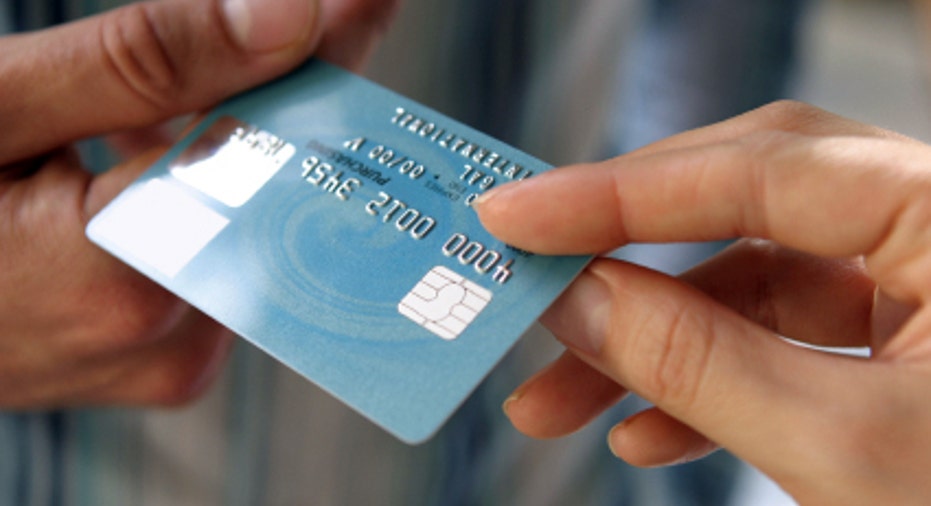You Aren't Stupid Enough to Post a Photo of Your Credit Card on Twitter, but Your Friends Might

Some people have clearly not gotten the memo: Posting personal information on the Internet could lead to identity theft. Many experts suggest not putting even fairly innocuous information, such as your address, telephone number, the names of your kids, your birth dates, and so on, although with social media sites like Facebook, that ship has sailed for a lot of people.
Still, most people are savvy enough not to post of a photo of their credit card or debit card on the Internet.
Most people.
Sigh. It boggles the mind that I'm still writing about this in 2012. Facebook, according to a quick glance at Wikipedia, launched in 2004. The Internet's been pretty popular since the mid-1990s.
But it's too interesting of a topic to ignore. Recently, a relatively new Twitter account started getting some national press in the media, and for good reason. A Twitter handle called @NeedADebitCard came forth, apparently last May, with a tag line that reads, "Please quit posting pictures of your debit cards, people."
Yes, crazy as it is to believe, if you scroll down and read the Twitter account, you'll see tweets that people have put up, in which they show their followers photos of their debit cards -- and credit cards.
Many of the links have been disabled, since some of the people who posted have apparently learned that the photo of their credit or debit card has been getting wider exposure than they intended, but still there's enough up to shake your head at and roll your eyes over.
Some of the tweets on the site, include, comments like:
- MY CREDIT CARD ! (Afterward, a photo of the card, complete with the numbers, appears. I'm not including the links, though if anyone wants to go find it, it won't be hard.
- And: Yaaaay my credit card came in! (Another link to the card owner's photo, which shows a debit card and not a credit card, but whatever. At least in this case, the owner has the last eight digits covered with a piece of paper. That's great, but still, you've just told the world that your name is, the name of your bank, your expiration date, and the first four digits of your card, far more information than I'd feel comfortable giving people.)
I have a feeling everyone here, just by the virtue that you're reading this, and that you can read, is far too intelligent to every post a picture of your credit card on the Internet, but maybe you have some dimwitted friends you'd like to forward this article to? Even just to imagine them fuming as they come to this part in the article in which they realize that you think they're dimwitted.
So let's review credit cards and identity theft, for the last remaining people on the Earth who don't get it, or really young credit card users who haven't thought this through:
Problem #1 Bad guys: These are bad people. They're out to get nice people, like you and me.
More explanation: You probably haven't heard of newspapers, although maybe you've read some of them for free on the Internet. The newspapers are full of stories about bad guys who want to steal money.
Problem #2 Your credit card: This is a piece of plastic that a credit card issuer gives you. You can use it as a form of money. You can buy things with it, and then you pay the credit card issuer back, with some interest if it takes you longer than a month to pay off your loan.
More explanation: Even if your credit limit isn't very high, this is a valuable item, not just for you, but for credit card thieves as well. If someone finds your credit card, or even worse, manages to get your credit card information with your knowledge, they can buy whatever they want, within your credit limit, on the Internet. True, they might have trouble if they have to type in the three-digit security code on the back of the card, but not all sites ask for that. Even worse, if someone finds your credit card before you realize what's going on, and if they have any of your other personal information, it's not inconceivable that a bad guy (see definition one) might try and get your credit limit raised, so they can steal more from you. Or they might try and use this opportunity to take out more credit cards in your name.
Problem #3 Moron: You, if you read the first two definitions and continue to post photos of your credit card or debit card online.
More explanation: Do I really need to explain this more? I'm not going to, but based on the fact that there's a steady stream of card photos posted on Twitter accounts like @NeedADebitCard, I probably should.
The original article can be found at CardRatings.com:You aren't stupid enough to post a photo of your credit card on Twitter, but your friends might be.



















